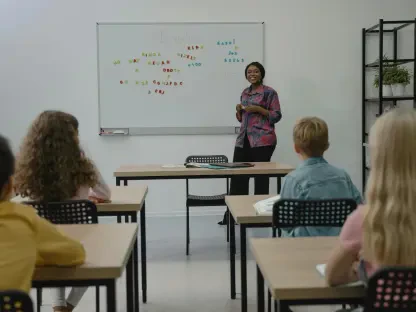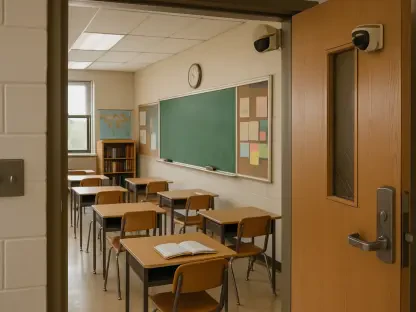The Chicago Public Schools (CPS) system is facing a wave of concern and scrutiny from both parents and educators due to recent adjustments regarding the allocation of special education classroom assistants, known as SECAs. These changes have become a focal point since they directly impact thousands of students, particularly those requiring specialized assistance due to disabilities. Parents are alarmed by these modifications, fearing they result from CPS’s considerable financial pressures as the system navigates a significant $730 million budget deficit.
The Role of SECAs in Educational Settings
Essential Support Providers
SECAs are integral to the educational experience of students with special needs, acting as the foundational support system within classrooms. They monitor and assist with students’ health and behavioral needs, thereby playing a pivotal role in maintaining a safe and productive learning environment. This support is essential for many students, including those with autism, who benefit significantly from the focused attention and guidance SECAs provide. Despite CPS’s assurance that resource allocation decisions are based on needs rather than financial constraints, there is a prevalent fear among families that the quality of support for special education might diminish.
Diverse Perspectives on Allocation
Joshua Long, head of CPS’s Office for Students with Disabilities, adds complexity to the ongoing discussions by suggesting that some schools may have an excess of SECAs. He references academic research indicating that an overabundance of paraprofessionals might inadvertently hinder the development of student independence and interaction skills. The number of SECA positions has doubled to 6,900 over a span of several years, prompted by a growing population of students with disabilities. This surge in support staff highlights a critical analysis of whether resources are distributed equitably across schools, considering some institutions in underprivileged areas face struggles in staffing these positions adequately.
Budget and Community Concerns
Financial Implications and Trust Issues
Chicago Public Schools has repeatedly clarified that the changes in SECA allocation are not driven by financial motives, yet historical context fuels skepticism. About a decade ago, similar attempts to adjust special education expenses resulted in negative outcomes and prompted state intervention. This history casts a shadow over current efforts, leading to doubts about whether financial shortcuts might again be influencing decision-making processes. The anxiety stems from previous instances where financial constraints led to perceived neglect of special education needs, intensifying vigilance among parents and educators.
Challenges from Staff and Families
The hesitance to accept the district’s assurances is shared by experienced staff like Jeannine Carrasquillo, a long-time SECA who disputes the notion that cost-saving measures are uninvolved. Her firsthand experiences in classrooms underscore the difficulty of compensating for staff shortages, particularly when managing students with intensive needs. Carrasquillo’s insights paint a vivid picture of the complexities involved in delivering high-quality education and support, illustrating the formidable challenges when SECA presence is insufficient.
Navigating Potential Disparities
Balancing Fiscal Responsibilities and Student Needs
CPS is navigating a delicate balance between managing its fiscal responsibilities and fulfilling its commitments to students with special needs. While officials maintain that the funding for special education remains at approximately $1.4 billion, there’s an underlying tension in how resources are being reallocated within the SECA framework. Discussions suggest a strategic attempt to optimize operations. However, without transparent communication, these shifts may amplify existing inequities and challenges in schools serving diverse socio-economic populations.
Advocacy and Equity in Response
The Chicago Public Schools (CPS) are currently grappling with growing concern and scrutiny from both parents and educators alike, triggered by recent changes to how special education classroom assistants, known as SECAs, are allocated. These assistants play a crucial role in supporting students with disabilities who need specialized assistance. The modifications have therefore become a significant focal point for discussion, as they affect thousands of students who rely on this support for their educational needs. Parents are particularly alarmed, suspecting that these changes are being driven by CPS’s financial challenges, including a daunting $730 million budget shortfall. This budget deficit has forced the school system to make difficult financial decisions that directly affect the services provided to students requiring special education support. The uncertainty and anxiety stemming from these adjustments have intensified discussions about the need for ensuring adequate resources and support for all students, regardless of financial constraints.









